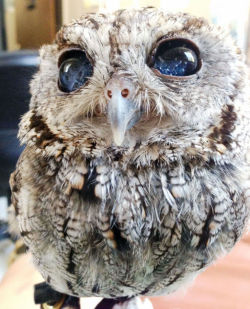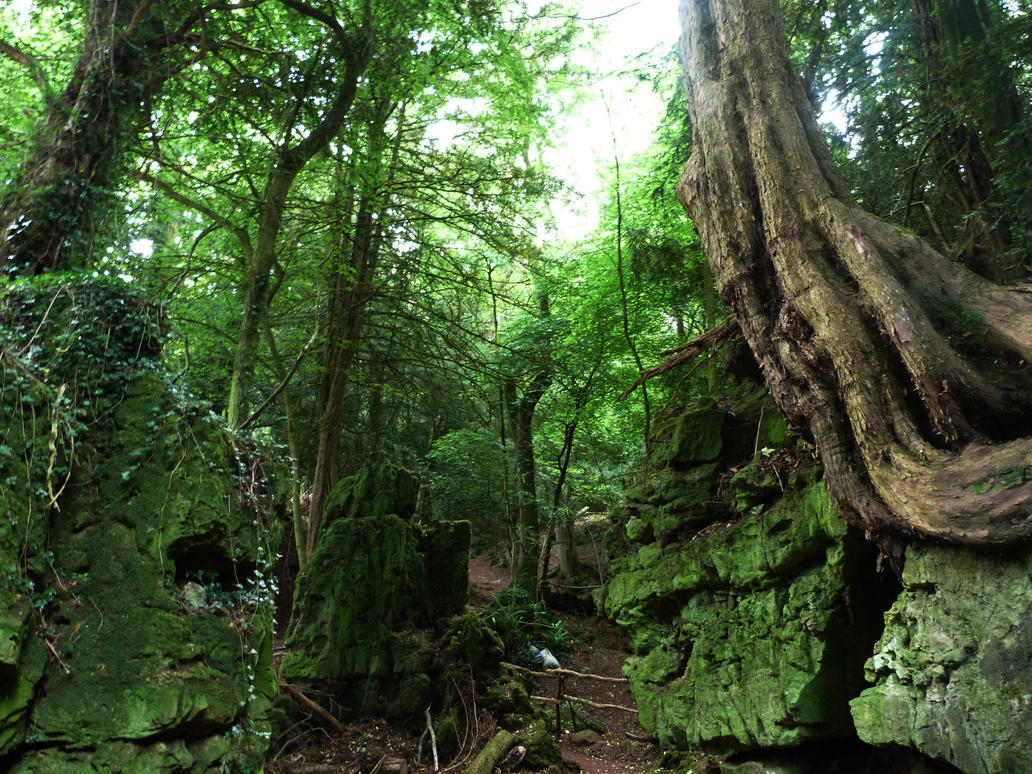![tumblr_nfd09j9cT91supp8bo1_250.jpg]()
Zeus is a blind Western screech owl. His starry eyes are due to a vitreous abnormality which is commonly described as vitreous veils or strands. Eyes are filled with a clear gel called vitreous humor, but sometimes cells or strands of the gel can clump together so that they are less transparent than the rest of the gel. Zeus also doesn’t appear to have an iris or lens, so his lack of eyesight means that he can’t be released into the wild.
Thank God, I shall come to no common end! To be happy means to be sleepy, in the language of slaves. It is as if I had pap and lukewarm water in my mouth when they talk to me of happiness. So vapid and so irredeemable is all for which you slaves give up your laurel crowns, your immortality!
—Friedrich Hölderlin, “Hyperion”
![puzzlewood_11_by_ladyxboleyn-d6cpzuu.jpg]()
Said to have inspired the likes J R R Tolkien and J K Rowling, Puzzlewood is an ancient woodland in The Forest of Dean, Gloucester. In the 19th century a mile of winding pathways leading over wooden bridges, and through deep and narrow gaps in the rocks, were laid and have remained mostly unchanged ever since. There is evidence of cast iron ore mining dating back to Roman times and in 1848 two workers discovered, in a hole in a rock, three earthenware jars filled with 3000 Roman coins.
![image]()
The lovely Irish folk tune Port na bPúcaí (“The Music of the Fairies”) had mystical beginnings — it’s said that the people of the Blasket Islands heard ethereal music and wrote an air to match it, hoping to placate unhappy spirits. Seamus Heaney’s poem “The Given Note” tells of a fiddler who took the song “out of wind off mid-Atlantic”:
Strange noises were heard
By others who followed, bits of a tune
Coming in on loud weather
Though nothing like melody.
Recent research suggests that, rather than fairies, the islanders may have been hearing the songs of whales transmitted through the canvas hulls of their fishing boats. Humpback whales pass through Irish waters each winter as they migrate south from the North Atlantic, and their songs seem to resemble the folk tune.
Ronan Browne, who plays the air above on Irish pipes, writes, “In the mid 1990s I went rooting through some cassettes of whale song and there in the middle of the Orca (Killer Whale) section I heard the opening notes of Port na bPúcaí!”
No one can say for certain whether the one inspired the other, of course, but if they didn’t it’s certainly a pleasing coincidence.


